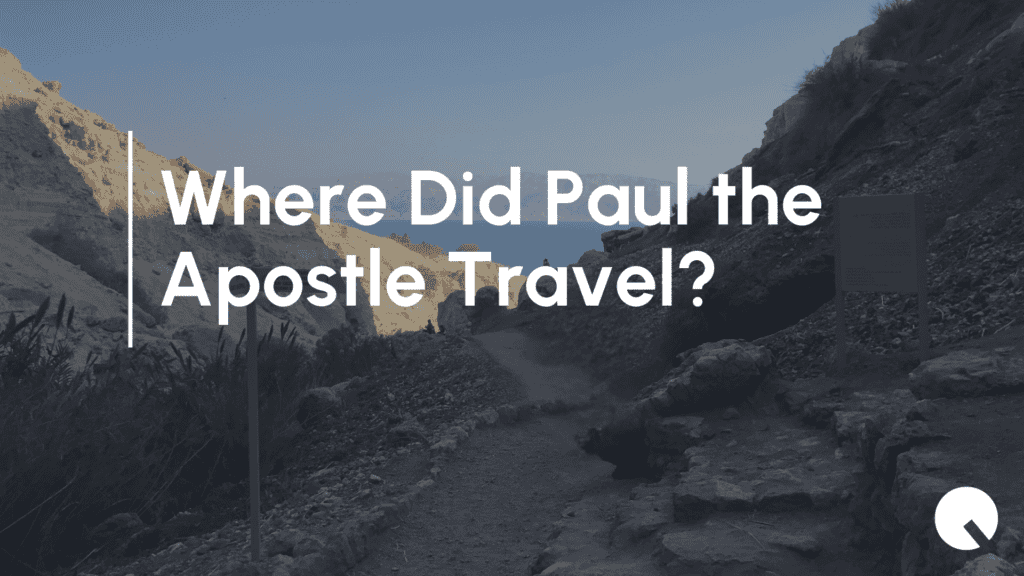Paul the Apostle, originally known as Saul of Tarsus, is one of the most influential figures in early Christianity. His travels across the Roman Empire were not just a series of journeys but a mission to spread the teachings of Jesus Christ. Through his extensive travels, Paul laid the groundwork for the spread of Christianity and left behind a legacy of letters and teachings that continue to inspire millions today. Understanding where Paul traveled—and why—is key to understanding his role in the early Christian church and the growth of Christianity itself.
Why Paul’s Travels Were Critical to His Ministry
Paul’s travels were pivotal to his ministry for several reasons. First, they allowed him to reach diverse groups of people, including Jews and Gentiles, in major cities across the Roman Empire. His mission was to spread the message of Jesus Christ beyond the confines of Jerusalem and Judea, and his travels were crucial in achieving this goal. Second, his journeys allowed him to establish and strengthen early Christian communities. Lastly, through his travels, Paul wrote many of his epistles, now part of the New Testament, offering guidance and doctrinal teachings to these early Christian communities.
Key Locations in Paul’s Travels
- Damascus
Paul’s journey to Damascus is one of the most iconic moments in his life. Originally traveling to persecute Christians, Paul experienced a dramatic conversion on the road to Damascus, where he encountered a vision of Jesus Christ. This experience marked his transformation from Saul, a fervent persecutor of Christians, to Paul, a devoted apostle of Christ. In Damascus, Paul began his ministry by preaching to the Jews and proclaiming Jesus as the Son of God. This event is crucial because it represents the beginning of his mission to spread Christianity. After facing hostility, he left Damascus and continued his ministry elsewhere. - Antioch
Antioch was a significant base for Paul’s missionary journeys. In Antioch, followers of Jesus were first called “Christians.” Here, Paul, alongside Barnabas, established a strong Christian community and used the city as a launching pad for his missions across Asia Minor. Antioch’s importance in Paul’s travels lies in its role as a major center for early Christian thought and evangelism. From Antioch, Paul set out on his first missionary journey, spreading the gospel across the Roman Empire. - Philippi
Philippi was the first European city where Paul established a Christian community. During his time in Philippi, Paul and his companion Silas were imprisoned after exorcising a spirit from a slave girl. Their imprisonment led to a miraculous event where an earthquake broke their chains, and the jailer, moved by the event, converted to Christianity. Paul’s time in Philippi is notable for the way it illustrates the spread of Christianity into Europe and his ability to persevere in his mission despite facing severe opposition. - Athens
Athens was another key location in Paul’s travels, known for its rich history and philosophical traditions. In Athens, Paul delivered his famous sermon at the Areopagus, also known as Mars Hill. Here, he skillfully engaged with Greek philosophers and introduced them to the concept of the “unknown God,” whom he declared to be the one true God. Paul’s approach in Athens highlights his ability to adapt his message to different audiences, using their cultural context to communicate the gospel effectively. - Corinth
Paul spent considerable time in Corinth, one of the largest and most diverse cities of the ancient world. It was in Corinth that Paul wrote several of his epistles, including the letters to the Corinthians, which addressed issues such as morality, spiritual gifts, and the resurrection. The church in Corinth faced many challenges, and Paul’s ministry there involved significant teaching and correction. His time in Corinth was essential in solidifying the early Christian church’s foundation in a key Roman city. - Rome
Rome was the final destination of Paul’s travels and a critical location for the spread of Christianity. Paul traveled to Rome as a prisoner, and it was here that he spent his last days. While in Rome, Paul continued his ministry, preaching the gospel even under house arrest. His letters from Rome, known as the Prison Epistles, are crucial texts that provide insight into his thoughts and teachings during this period.
The Impact of Paul’s Travels on Early Christianity
Paul’s extensive travels across the Roman Empire were instrumental in establishing and spreading Christianity. His journeys allowed him to build relationships with diverse communities, plant churches, and provide pastoral care through his letters, now part of the New Testament. Paul’s ability to adapt his message to different cultural contexts and his unwavering commitment to his mission were key to the spread of Christianity in its early years.
For a more in-depth exploration of Paul’s travels and their impact, watch Nobody Liked Paul seasons 1 and 2. This series dives deep into Paul’s life, his controversial nature, and his transformative journey from persecutor to apostle.
Learn More About Paul’s Travels
Paul the Apostle’s travels were not just about reaching new locations; they were about spreading a transformative message that would change the world. From Damascus to Rome, each city he visited played a critical role in the development of early Christian thought and practice. His travels, teachings, and writings continue to influence Christianity today, making him a pivotal figure in religious history. To learn more about Paul’s fascinating journey, check out Nobody Liked Paul: the First Christians of Rome and discover the man who helped shape the course of Christianity.









